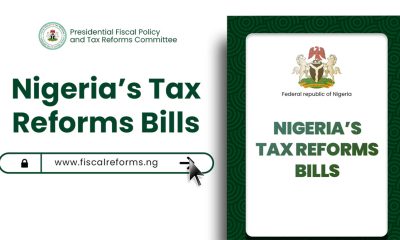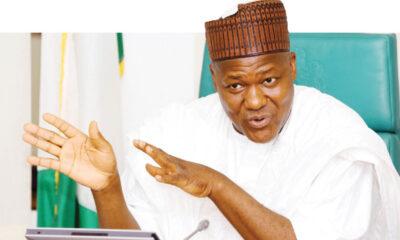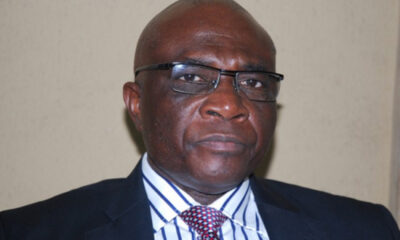Opinion
Obi seems to be poverty-shaming the North, but is he? – Farooq Kperogi

Obi seems to be poverty-shaming the North, but is he? – Farooq Kperogi
In a series of tweets on April 18, Labor Party presidential candidate Peter Obi said, among other things, that he was “committed to lifting people out of poverty and I remain committed to transforming Nigeria starting from the North to every part of the nation.” This predictably rankled many northerners, particularly northern Muslims, who understood the tweet as a backhanded, stereotypical vilification of their region.
Why did Obi isolate the North for special focus in a tweet about poverty and the transformation of Nigeria? Why wasn’t he region-agnostic, i.e., not single out any specific region of Nigeria for negative attention?
Why did he come across as articulating a local and economic version of the nineteenth-century racist European doctrine known as the “white man’s burden,” which basically asserted that the unexampled civilizational superiority of the white race imposed on them the moral duty to enlighten the backward and benighted nonwhite populations of the world?
Obi’s spotlight on the North is, of course, balanced on a thick thread of irrefutably solid statistical evidence. According to the National Bureau of Statistics (NBS), of the 133 million Nigerians who writhe in unspeakably stifling multidimensional poverty as of the end of last year, 86 million (which represents 65 percent) live in the North.
READ ALSO:
- Why we can’t evacuate Nigerian students in Sudan now – FG
- Gunmen ambush family in South African homestead, kill 10
- Arsenal rescue point against Southampton in title setback
The North constitutes 54 percent of Nigeria’s population (and 70 percent of its landmass), so if the region makes up 65 percent of the nation’s poorest population there’s clearly an imbalance. Given that context, it’s reasonable that Obi chose to call attention to the poverty in the North, as he had done many times in the past, and to invoke it as the launching pad of his commitment to transform Nigeria. (Had he spotlighted the South, he might also have been accused of regional self-centeredness!)
But to expect all northerners to process Obi’s message the way I’ve done is to have a limited understanding of human behaviors and motivations. You see, every region in Nigeria, as I’ve pointed out in the past, has its stereotypical vulnerabilities about which it is sensitive.
From religious extremism to endemic child abandonment, from 419 email scams to “baby factories,” from child trafficking and prostitution in foreign lands to disabling alcoholism, from credit card scams to kidnapping, etc. Nigerians can, and often do, easily territorialize crimes and negative traits within their national space.
These stereotypical territorializations of crimes and negative stereotypes are often considered offensive when they are uttered by “outsiders” but tolerated, sometimes praised even, when they are uttered by “insiders.”
Many northerners have called attention to the endemic poverty in the North and got praises for it. Sanusi Lamido Sanusi, for instance, has been brutal and unsparing when he calls attention to poverty in the region and the culture that conduces to it.
When he spoke at the fourth Kaduna Investment Summit on April 3, 2019, Aliko Dangote, the world’s richest Black person who is incidentally a northern Nigerian, also said way worse things about poverty in the North than Obi could ever say.
“Nigeria is ranked at 157th out of 189 countries on the human development index. While the overall socio-economic condition in the country is a cause for concern, the regional disparities are in fact very alarming,” he said. “In the Northwestern and Northeastern parts of Nigeria, more than 60 per cent of the population lives in extreme poverty.”
READ ALSO:
- 2023 UTME: JAMB directs candidates to print notification slips
- Kaduna man kills girlfriend for attempting to jilt him
- Police begin manhunt for killers of five officers in Imo
No northerner had a problem with Dangote for what he said. In fact, many northerners lauded his forthrightness. Northerners are resentful of Obi’s oblique references to the poverty in the North because he is an “outsider” who is in addition resented for asking the “Church” to “take back” its “country” and for characterizing the 2023 election as a “religious war” between Muslims and Christians.
But southerners are also hypersensitive to even the mildest references by “outsiders” to negative indices that are exclusive to them. For instance, in March 2015, Mrs. Aisha Buhari stirred up a hornet’s nest when, during a campaign speech in Benin City, she said the biggest problems confronting Nigeria’s deep south were girl child trafficking and the mistreatment of widows.
“In each zone of the country, we have peculiar problems. Our problems differ,” she said. “For me, in this zone, girl child trafficking should be considered one of our problems, though I know there is unemployment…. There must be a design, a cultural design, that can accommodate the widow, and then a design that will make a girl child feel comfortable wherever she is in this country. She doesn’t need to leave her country to go and prostitute elsewhere. It is not her potion; her potion is to have a highly standard moral society for her to live, get married, have children, train them, and to support them to become the future of our leaders.”
Many southern Nigerians seethed with raw rage in the aftermath of Aisha’s speech. They reviled, ridiculed, and besmirched the North in retaliation. They told her to first take the plank out of the North’s eye so she would see clearly enough to remove the speck from the South’s eye.
Well, many northerners are returning the favor to Obi. There is nothing in Obi’s eight-year record as governor of Anambra State to suggest that he can help people exit poverty. Data from the National Bureau of Statistics, which Charles Soludo referenced in a 2015 article, showed that Obi took Anambra from the most prosperous state in Nigeria to one of its poorest.
READ ALSO:
- Flying Eagles to face Brazil, Italy at FIFA Under-20 World Cup
- Updated: As Sudan war rages, FG worried about 4,000 trapped Nigerian students
In 2004, according to the NBS, poverty in Anambra was 20 percent, which was the lowest in the country at the time. By the end of Obi’s first term as governor of Anambra in 2010, poverty rose to 68 percent. His post-gubernatorial social media deodorization campaigns conceal this sordid fact.
It is easy to see why he impoverished the people of Anambra. He was by far one of Nigeria’s most virulently anti-worker governors, which makes his being a candidate of the Labor Party one of the biggest paradoxes of the 2023 election.
He merged the school fees of three terms into one and required that they be paid at once, which forced children from poor homes to drop out of school, refused to pay the minimum wage and fired workers who went on strike, caused patients to die in hospitals because doctors went on strike for 13 months over a demand for a 60 percent raise in their take-home pay, caused ASUU at the then Anambra State University to go on strike for 6 months and fired the Vice Chancellor for supporting them, etc.
So, if he couldn’t transform Anambra, if he actually took the state from the least poor state in the country to one of its poorest until his successor reversed it, how could he possibly save the North from poverty? I think that’s a legitimate query.
Obi’s other claim to machismo in governance is that he saved and left N75 billion in the coffers of Anambra State. However, his handpicked successor, Willie Obiano, said the claim was a “hoax.” The secretary to the Anambra state government who served in Obiano’s administration also said, “The N75 billion was not there; it was not handed over to anybody.”
Let’s, for the sake of argument, accept that Obi’s claims were genuine, but what’s the sense in depriving workers of their just dues while “saving” money? Money has no value except what you make of it. There is no wisdom in being parsimonious while real living people starve and sink to depths of poverty.
Well, even if Obi has the capacity to lift northerners out of poverty, he could do with more tact and discretion in saying this because people tend to take exceptions to being told home truths about themselves by outsiders. That’s why, for instance, Black American hip-hop youth call themselves “nigga” but will go to war if a white person as much as says “nig.”
I had an interesting conversation about this with my American students some years back. A white student wondered why American Blacks call themselves the derogatory name “nigga” and tolerate being told unpleasant things about their culture by Black celebrities but take offense when a white person does the same.
A Black student in the class gave a perfect analogy in response. He asked the white student if she ever fights with and insults her siblings, and she answered in the affirmative. He then asked her if she thought it would be OK for another person to fight with and insult her siblings just because she does the same. His point sank in.
Obi seems to be poverty-shaming the North, but is he? – Farooq Kperogi
Farooq Kperogi is a renowned newspaper column
Opinion
Tinubu’s Buharization of NNPC By Farooq Kperogi
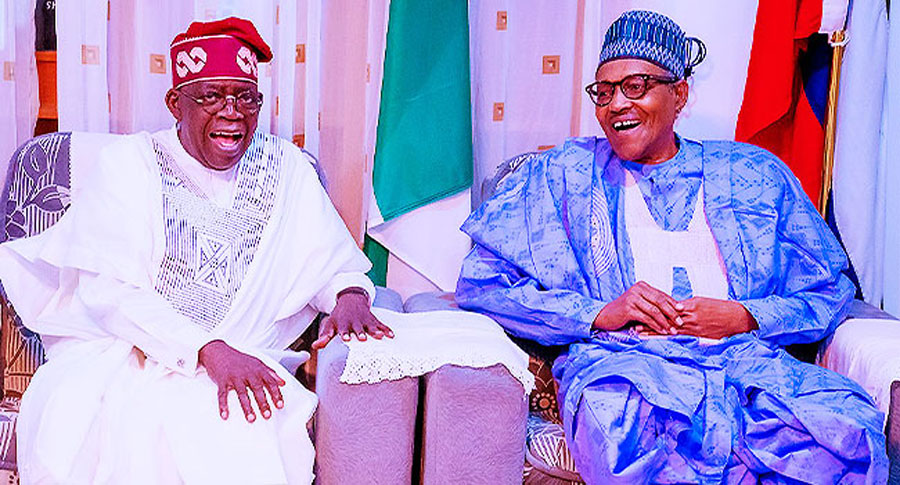
Tinubu’s Buharization of NNPC by Farooq Kperogi
After the sustained, unwarranted personal attacks I endured for eight years from northerners for unswervingly calling out what I called the “embarrassingly undisguised Arewacentricity of Buhari’s appointments” in a February 2, 2019, column titled “Even Ahmadu Bello Would Be Ashamed of Buhari’s Arewacentricity,” I promised that I would look the other way if a southern president returned the favor after Buhari’s tenure.
But promises made in the heat of disillusionment often crumble under the weight of principle.
Ironically, this column was inspired by a well-regarded Yoruba supporter of President Bola Ahmed Tinubu who is worried, in fact embarrassed, by the optics of what he says is Tinubu’s relentless Yorubacentric take-over of the Nigerian National Petroleum Company (NNPC).
His concern wasn’t just partisan discomfort; it was a profound unease about how this nepotistic approach undermines national cohesion.
I frankly hadn’t been paying attention to the internal dynamics at the NNPC, but the acquaintance pointed out that Yoruba people now occupy major positions at the NNPC and that a certain (person) is “being proposed as GMD after Mele Kyari’s term expires” early next year.
I haven’t independently confirmed the accuracy of this claim but given the closeness of the source of information to people in the circles of power, it’s probably best to not dismiss this with the wave of the hand.
His concern is that Tinubu, from the Southwest, is already the minister of petroleum. Senator Heineken Lokpobiri, the Minister of State for Petroleum and Chairman of the NNPC, is from the South-South. Chief Pius Akinyelure from the Southwest is NNPC’s Non-Executive Board Chairman.
READ ALSO:
- Lagos Imam to Tinubu: You haven’t disappointed us
- Ronaldo, Vinicius, Yamal win big at 2024 Globe Soccer Awards [Full list of winners]
- Vinicius should have won Ballon d’Or, not Rodri – Ronaldo
The head of the NNPC Upstream Investment Management Services (NUIMS), Mr. Bala Wunti, my acquaintance pointed out, has been replaced by one Seyi Omotowa. Gbenga Komolafe is the chief executive officer of the Nigerian Upstream Petroleum Regulatory Commission (NUPRC), making him the highest-ranking upstream regulator.
“If a Yoruba man were to be the GMD, another Yoruba man is the Chairman, and yet another Yoruba man is the regulator, that’s extreme lopsidedness,” and other parts of Nigeria would be justified to feel uncomfortable, my acquaintance said.
As with issues of this nature, the reality may be more complex that the surface-level impressions that I have been presented with. Of the 12-member non-executive Board of Directors, I counted at least four names that I recognize as northern, and that includes Kyari, the outgoing GMD.
The 7-member Senior Management Team on NNPC’s website has three northerners (if Kyari is included). That seems fair. Plus, Buhari actually appointed many of the Yoruba people in high places at the NNPC. By these metrics, one might argue that there’s a semblance of balance.
However, Tinubu’s broader public image tells a different story. His administration is rapidly cementing a reputation for Yorubacentric provincialism. Like the late Umaru Musa Yar’Adua, who governed Nigeria as if he were still a Katsina governor, Tinubu appears to be governing Nigeria as though he were still the governor of Lagos.
Just like Yar’adua was elected a Nigerian president but operated like a Katsina governor in Abuja, Tinubu is also, so far, a Nigerian president only in name. His mindset is still that of the governor of Lagos.
With a few notable (and in some cases unavoidable) exceptions, Tinubu’s government is largely the re-enactment of his time as the governor of Lagos. It is, for all practical purposes, an unabashed Lagos-centric Yorubacracy.
To be fair, though, with the possible exception of Olusegun Obasanjo’s administration, all civilian regimes since 1999 have been insular ethnocracies.
My source reminded me of a viral social media post I wrote on January 14, 2019, titled “New IGP: Why Progressive Northerners Should be Embarrassed” where I gave four reasons for being insistently censorious of Buhari’s Arewacentric appointments in response to southerners who asked why I was bothered since I was a northern Muslim who was “favored” by such appointments—“favored,” that is, on the emotional and symbolic plane.
READ ALSO:
- Nigeria Customs Service begins 2025 recruitment [How to apply]
- Dangote, Tinubu, Lookman, Badenoch named among 100 most influential Africans in 2024
- Heavy security in Ilesa as ex-Osun deputy gov emerges new Owa-Obokun
I pointed out that I criticized similar such parochial appointments by previous presidents from the South and that it would be hypocritical to look the other way because I was now “favored” by such appointments.
I said people from my region and religion won’t always be in power, and I wanted to be able to stand on a firm moral pedestal when I criticize future presidents who replicate Buhari’s (and previous presidents’) provincialism.
Most importantly, I said, I was personally embarrassed by Buhari’s insularity and that every progressive northerner should be. I described it as the sort of embarrassment you feel when your best friend who thinks highly of your mother visits you in your home and your mother, during a family dinner, gives you a considerably bigger food portion size and choicer pieces of meat than your friend.
“You feel like screaming: ‘Mom, I know you love me, but you’re embarrassing me by showing overt preferential treatment to me in the presence of my friend’,” I wrote.
The Yoruba acquaintance of mine who alerted me to the creeping Yoruba-centric take-over of the NNPC said he was doing so out of a feeling of the same sense of embarrassment that inspired my rage against Buhari’s appointments that favored the North unfairly, especially in the areas of security.
Tinubu is doing in the economy sector what Buhari did in the security sector. The minister of finance, the governor of the central bank, and every other consequential agency in finance is headed by a Yoruba man. I am not sure Nigeria has ever seen this level of extreme, state-sanctioned ethnocentric domination of a critical segment of national life.
Appointing another Yoruba individual as the head of the NNPC would complete what many already perceive as the ethnic capture of Nigeria’s economic nerve center. It would not only cement Tinubu’s image as an insensitive ethnocrat but also exacerbate public discontent and foster deeper divisions in an already polarized nation.
If Tinubu is unaware of this burgeoning perception, he needs to awaken to its reality. Leadership is not just about policies and actions; it’s also about managing optics and inspiring confidence in a nation’s collective identity.
In a September 5, 2015, column titled “Buhari is Losing the Symbolic War,” where I railed against the exclusion of Igbo people in Buhari’s first appointments, I wrote:
“Symbolism isn’t the same thing as substance. Appointing people to governmental positions does nothing to improve anybody’s lot—except, perhaps, the people so appointed and their immediate families.
“Jonathan’s disastrous 5-year presidency couldn’t even bring basic infrastructure like boreholes to his hometown of Otueke, yet his people derive vicarious satisfaction from the fact of his being Nigeria’s former president.
“Human beings are animated by a multiplicity of impulses, including rational and emotional impulses, both of which are legitimate. When we turn on our rational impulses, we may ask: What would appointing an Igbo man as SGF, for instance, do to Igbo people? The answer is ‘nothing.’
“But we are more than rational beings: we are also emotional beings. That’s why people are invested in symbolism. Appointing someone from the southeast or the deep south is merely a symbolic gesture, but it inspires a sense of inclusion in the minds of many people from that region; it serves as a symbolic conduit through which people vicariously connect with the government.”
This cycle of ethnic favoritism must end if Nigeria is to realize its full potential as a nation. To grow and thrive, we need leaders who can transcend the narrow confines of ethnocracy.
We need leadership that embraces diversity and inclusion, not as buzzwords but as guiding principles for governance. Only then can we begin to heal the fractures that divide us and build a nation that serves all its citizens, regardless of ethnicity or region.
Farooq Kperogi is a renowned Nigerian columnist and United States-based Professor of Media Studies.
Tinubu’s Buharization of NNPC by Farooq Kperogi
Opinion
Ademola Lookman showed Davido and Kemi Badenoch that wisdom is not by age – Omokri
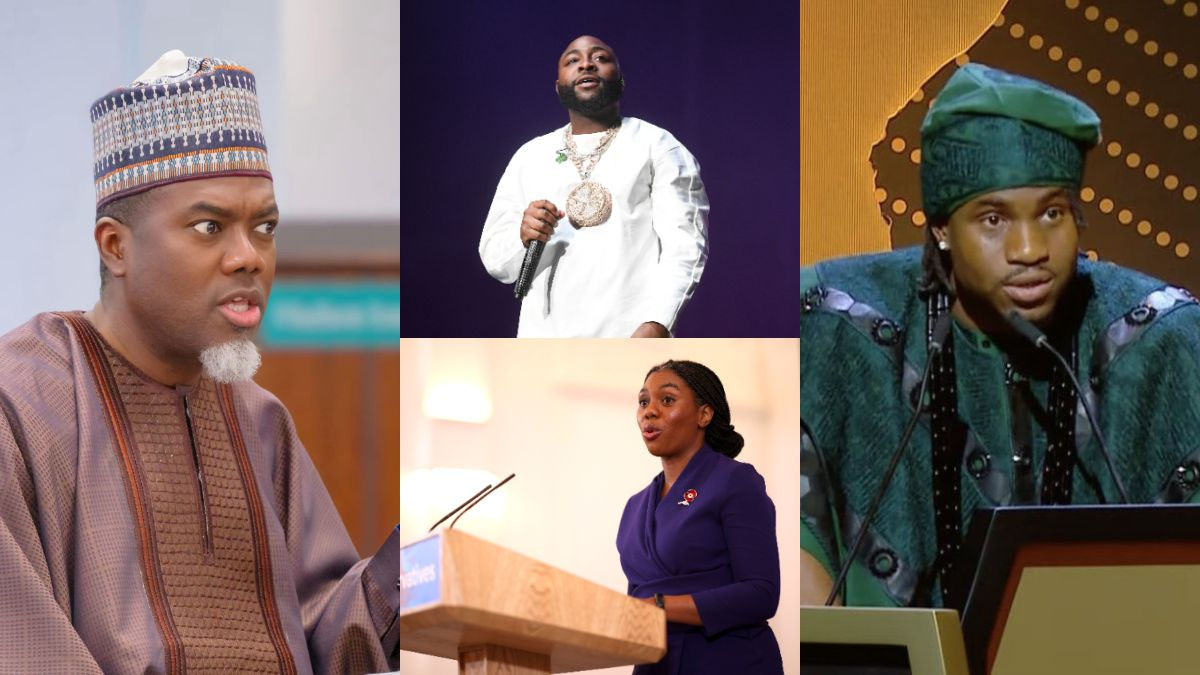
Ademola Lookman showed Davido and Kemi Badenoch that wisdom is not by age – Omokri
Recently, the singer David Adeleke was given a global stage to do whatever he wanted and deliver any message.
Sadly, Mr. Adeleke used the opportunity to speak in an American accent. Not only that, he used that American accent to talk down on Nigeria and tell the world not to invest in Nigeria because, as he put it, Nigeria’s “economy is in shambles”.
Coincidentally, a month after his faux pas, Kemi Badenoch, probably inspired by Davido, used her British accent to talk down Nigeria, calling us “a very poor country” where the police rob citizens.
But the interesting thing about her own case is that the next day, the BBC featured a panel of Conservative Party big shots, and one of them, Albie Amankona, a party chieftain from Chiswick, who is also a celebrity broadcaster, said, and this is a direct quote:
“If you are a Brexiteer, and you are saying we need to be expanding our global trade beyond the European Union, we want to be looking at emerging markets for growth, don’t slag off one of the fastest growing economies in Africa.”
Is it not strange that it took the BBC and a British politician to promote Nigeria as one of the fastest-growing economies in Africa?
And just when we thought it was all bad news, God gave us a breath of fresh air in the youthful Ademola Lookman, who used the global podium granted to him by his winning the 2024 African Footballer of the Year award to promote and project Nigeria and the Lukumi Yoruba language to the world.
READ ALSO:
- MURIC tackles Kemi Badenoch: Can you bring UK police when coming to Nigeria?
- Reps probe $754.2m, N141.6bn tractors, harvesters contract fraud
- Gov Adeleke intervenes in man sentenced to death for stealing fowl (Video)
Wisdom is not by age. If not, Ademola Lookman, who is just twenty-seven, will not have displayed greater wisdom than David Adeleke, who is thirty-two, and Kemi Badenoch, at forty-four.
Mr. Lookman proved that the age of Methuselah has nothing to do with the wisdom of Solomon.
And it is not as though other ethnicities with global icons do not also project Nigeria. They do.
Dr. Mrs. Ngozi Okonjo-Iweala spoke Igbo on the podium of the WTO in Geneva. In terms of prestige, she is FAR above Lookman.
My campaign is not for the Lukumi Yoruba alone. It is for all sub-Saharan Black Africans to learn to speak their language and not use ability to speak English or another colonial language as a measure of intelligence.
Besides Lukumi Yoruba and Hausa, every other Nigerian language, including Fulfulde, is gradually dying out.
General Buhari is half Fulani and half Kanuri. Yet, he cannot speak either Fuifulde or Kanuri. But he speaks Hausa and English.
Fact-check me: In 2012, UNESCO declared Igbo an endangered language.
However, the Lukumi Yoruba are to be commended for their affirmative actions to advance their language and culture.
Let me give you an example. All six Governors of the Southwest bear full Lukumi names: Jide Sanwa-Olu, Seyi Makinde, Dapo Abiodun, Ademola Adeleke, Abiodun Oyebanji, and Orighomisan Aiyedatiwa.
No other zone in Nigeria has all its governors bearing ethnic Nigerian names as first and second names. They either bear Arabic or European names as first names or even first and second names.
If we truly want to be the Giant of Africa, we must take affirmative steps to preserve our language and culture so we can have children like Ademola Lookman.
Teach your language to your children before you teach them English. They will learn English at school. Being multilingual is scientifically proven to boost intelligence.
Fact-check me: In the U.S., Latino kids do not speak English until they start school. They learn Spanish as a first language.
Even if you relocate to the UK, the best you can be is British. You can never be English. And if your choice of Japa is the U.S., the highest you can be is an American citizen. You will never become a White Anglo-Saxon Protestant WASP.
Your power lies in balancing ancient and modern, Western and African, English (or other colonial languages) and your native tongue.
That is the way to reverse language erosion, like the Lukumi Yoruba.
Ademola Lookman showed Davido and Kemi Badenoch that wisdom is not by age – Omokri
Opinion
Kemi Badenoch’s Hate for Nigeria – Femi Fani-Kayode

Kemi Badenoch’s Hate for Nigeria – Femi Fani-Kayode
“I find it interesting that everyone defines me as a Nigerian. I identify less with the country than with my specific ethnic group. I have nothing in common with the people from the north of the country, the Boko Haram, where Islamism is. Being Yoruba is my true identity and I refuse to be lumped with the northern people of Nigeria who were our ethnic enemies, all in the name of being called a Nigerian”- @KemiBadenoch.
Dangerous rhetoric
Kemi Badenoch, MP, the leader of the British Conservative Party and Opposition in the @UKParliament, has refused to stop at just denigrating our country but has gone a step further by seeking to divide us on ethnic lines.
She claims that she never regarded herself as being a Nigerian but rather a Yoruba and that she never identified with the people from the Northern part of our country who she collectively describes as being “Boko Haram Islamists” and “terrorists”.
This is dangerous rhetoric coming from an impudent and ignorant foreign leader who knows nothing about our country, who does not know her place and who insists on stirring up a storm that she cannot contain and that may eventually consume her.
It is rather like saying that she identifies more with the English than she does with the Scots and the Welsh whom she regards as nothing more than homicidal and murderous barbarians that once waged war against her ethnic English compatriots!
All this coming from a young lady of colour that is a political leader in a multi-ethnic, multi-religious and multi-cultural country that lays claim to being the epitome of decency and civilisation! What a strange and inexplicable contradiction this is.
READ ALSO:
- CCT chair removal: Civil groups sue Tinubu, Akpabio, others
- New President-General of Ohanaeze Chukwu to reign for 27 days
- Economy: I derive no pleasure in causing Nigerians pain, says Tinubu
Her intentions are malevolent and insidious and her objective, outside of ridiculing and mocking us, is to divide us and bring us to our knees.
I am constrained to ask, what on earth happened to this creature in her youth and why does she hate Nigeria with such passion?
Did something happen to her when she lived here which she has kept secret?
Kemi Badenoch’s Hate for Nigeria – Femi Fani-Kayode
-

 Auto2 days ago
Auto2 days agoLSM MD extols founder’s qualities after latter posthumous industry award
-

 Entertainment2 days ago
Entertainment2 days agoMultiChoice announces free access to all DSTV channels for 3 days
-

 News2 days ago
News2 days agoNigeria Customs Service begins 2025 recruitment [How to apply]
-

 metro2 days ago
metro2 days agoHeavy security in Ilesa as ex-Osun deputy gov emerges new Owa-Obokun
-

 metro2 days ago
metro2 days agoLagos Imam to Tinubu: You haven’t disappointed us
-

 metro2 days ago
metro2 days agoDangote, Tinubu, Lookman named among 100 most influential Africans in 2024 (Full list)
-

 Sports2 days ago
Sports2 days agoRonaldo, Vinicius, Yamal win big at 2024 Globe Soccer Awards [Full list of winners]
-

 Africa1 day ago
Africa1 day agoNiger’s president faces fire at home over attack on Nigeria

